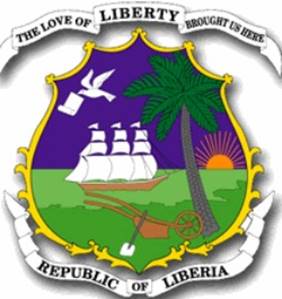July 26 and the Road to National Independence
By Nyaquoi Gehgan Bowman
Contributing Writer
The Perspective
Atlanta, Georgia
July 23, 2019
 |
|---|
July 26 is observed every year as a national holiday in Liberia. It is a day set aside to commemorate Liberia’s independence. The festivities surrounding this day is dramatized by thunderous explosions of fireworks, public displayed of the national flag and donning attires that reflect national pride, etc. Though this day was officially reserved as a public holiday in 1956 with the passage of the “Patriotic and Cultural Observances Law”, Title 26, the tradition of Independence Day celebrations goes as far back as 1847, when the Colony’s Legislative Council entered into a memorandum of understanding with the American Colonization Society (ACS) for self-government. However, the hasty declaration of independence for Liberia was largely influenced by unrestrained and seemingly aggressive behaviors of the British and French pedestrians operating in the territorial borders of Liberia.
The death of Governor Thomas Buchanan ushered in Deputy Governor Joseph Jenkins Roberts as the colony’s new Governor. Roberts’ elevation to the governorship was overwhelmingly welcomed and embraced by the settler population and the American Colonization Society. However, Gov. Roberts triumph as the first black governor was short-lived when British and French vessels began to challenge his authority, by illegally encroaching on the colony’s territorial waters and conducting trades from which the colonial government did not directly benefit. Such flagrant violations put Roberts in a precarious situation against two mighty armies (British and French). But as chief custodian of the colony, Roberts had to show strength to protect the dignity and territory integrity of the colony. Consequently, Roberts announced the imposition of Custom Duties on all vessels and commodities entering Liberia’s shores.
The British immediately rejected Roberts decision and vowed not to comply with the regulations. The British opposition to the imposition of customs duties was followed by a written communication to the Liberian authority, delivered by Captain Denman of Royal Navy. The communication informed the Liberian authority that British trader will not adhere to any law; they further argued that British traders had for years carried on an “undisturbed trade with the indigenous”; therefore, the Liberian government had no rights to insist on their compliance with this new regulations. Moreover, the British viewed Liberia’s decision to impose Custom Duties as “inadmissible” on grounds that the imposition of Custom Duties on foreigners are a matter of sovereign rights, which can only be exercised by a sovereign and independent state. The gridlock ignited a diplomatic firestorm; prompting the British to inquire from the United States about its relations with Liberia. The U.S Secretary of State Abel P. Upshur responded that Liberia had no diplomatic relations with the U.S; however, the Secretary cautioned the British that the United States would be very “unwilling to see Liberia despoiled of its territory rightfully acquired”.
Gov. Roberts presented the British communication to his government for consideration and a rejoinder. While pondering on a response, another incident occurred and escalated tensions between the two authorities (British and Commonwealth of Liberia). A British vessel (Little Ben) was seized by a Liberian Petrol Boat for violating Liberia’s territorial waters; in response, the British took custody of a vessel (John Seyes) hoisting a Liberian flag on suspicion of Slave Trade. Liberia asked the America Colonization Society and the United States to intervene, but the United States declined. The America Colonization Societ too was powerless to help, because as a philanthropic organization the ACS had no standing army of its own and therefore could do nothing to challenge the British.
And so the captured Liberian vessel was taken to Freetown for trial, where the British demanded the unconditional release of their vessel, as well as reiterated their argument that Liberia was not a sovereign and independent nation; therefore, it was not entitled to a national flag. In essence, the British were arguing that Liberia had an illegitimate claim to the vessel (The John Seyes) because only a sovereign and independent nation was entitled to a national flag. Realizing Liberia precarious situation Gov. Roberts advised the ACS that a formal declaration of independence was the only way out for Liberia. Consequently, the ACS resolved that “the time had arrived when it was expedient for the people of the Commonwealth of Liberia to take into their own hands the whole work of self-government”. This positive response by the ACS pleased Gov. Roberts and on July 5th, 1847, Roberts ordered the Constitutional Convention in session to draft a plan for a formal declaration of independence for Liberia. With the assistance of Simon Greenleaf of Harvard Law School, a draft constitution was prepared and submitted to the Colonial Legislative Council for consideration. However, the draft prepared by Greenleaf and his team had a clause in it that allowed the ACS to retain the title of the colony. This clause was vehemently rejected and ultimately removed, clearing the way for a total Declaration of Independence, on July 26, 1847. And on October 5th, 1847, Gov. Roberts of Pro Admin Party defeated Samuel Benedict of Anti Admin party to become Liberia’s first elected President.
About the author: Nyaquoi Gehgan Bowman is a Liberia historian and contributor to the Liberian writer series at Kiiton Press. He can be reached at vera4nya@yahoo.com